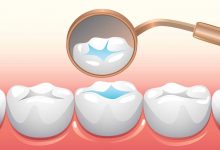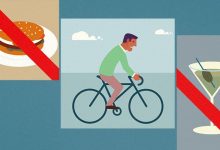How Can You Help Your Teen Avoid Using Drugs And Alcohol
Index Of The Blog
Teen Avoid Using Drugs And Alcohol

We all have heard that the most crucial stage of human life is teenage as boys and girls go through hormonal changes that affect their overall health. Teenagers experience mood swings and often find it difficult to interpret their feelings. Besides, individuals have to make crucial decisions that set the direction of their future lives. Adults expect them to act responsibly and demonstrate maturity in their dealings, which makes them feel burdened. Adolescents start viewing the world with different perspectives and experiment with various things. Many teens indulge in drugs or alcohol despite being aware of their negative impacts on them.
Experts state that there is no single reason that teenagers get into the usage of drugs or alcohol. Sometimes they want to fit in the community; at others, they find solace in drugs; some teenagers indulge in drugs only to try new things. Before teens know it, they become addicted to them. An alarming number of teenagers are suffering from depression, and they consider drugs an instant solution.
Adolescence is the time when young people make many irrational decisions and adopt unhealthy practices. Since indulgence in drugs among teens is becoming prevalent, parents often search for preventive ways to keep their children safe.
Below we are listing some techniques that can help your teen avoid using drugs and alcohol:
1. Befriend them
Psychiatrists say that parents can keep children away from many problems if they have good relations with them. Teens are hard to talk to as they often get into their shells at this age. Many adolescents feel that their parents cannot understand them. As a result, they prefer keeping things to themselves or making other friends. The critical point is that befriending teens is more challenging, and parents must strive to make friends with their children at a young age. Still, if they miss out on doing so when they were children, they should put in extra efforts to befriend them when they are teens.
Friends talk to their heart content without fear of being judged. Establishing a bond with teens helps children open up. Parents must discuss the consequences of drugs and their adverse effects. Many addicts end up in rehabilitation centers and have to struggle hard to regain their old life. Parents can take them to any treatment center to show that addicts’ conditions get severe and need acute treatment. Befriending teens may require parents to exercise patience and broaden their horizons.
2. Get Involved in Teens’ lives
Most parents say that teenagers are mature enough, so they should take the reins of their lives. They often feel their children do not like their involvement, so they should stay out of their life; it can be perilous. Teens often isolate themselves and do not involve much in domestic matters. Parents must strive to spend quality time together and bring excuses to stay close to them. They can have the rule to have one meal dinner together where they have no device-use rule. Parents must make a point to attend their children’s PTM and their matches and should make an effort to celebrate their achievements. Moreover, they must know their children’s friends and their activities.
3. Be a Good Role Model
Many parents who have a history of drug and alcohol addiction, their children also get into substance abuse. Children learn more from observation; than they do from formal teaching. Parents need to demonstrate good behavior and be good role models for them. They must strive to practice all qualities they want their children to embody, so teens do not have to look outside to make their ideal.
4. Teach them to Say No
A large number of teens indulge in drugs due to peer pressure. They do not want to stand out, and they start drinking alcohol in the quest to fit in among their friend circle. Sometimes friends put pressure and bully them into drug use, stating that they are weak. Parents must instill strong values in children and teach them to say a firm ‘no.’ Furthermore, suppose parents realize that some of their children’s friends are into drug use. In that case, they must encourage them to lose contact and make new friends along with the steps like visiting Sunrise Native Recovery.
5. Practice Open Communication
Many parents complain that as soon as their children enter their teenage years, they stop talking to them at all. Parents need to look into patterns if they have changed their attitude. Parents may have to put in extra effort to make adolescents talk. They need to win their trust and practice open communication. Have an open-door policy and be approachable. Parents need to establish that their teens can talk about anything with them and understand their point of view.
Another point to remember is that many parents make the mistake of invalidating their teens’ feelings, making their children drift away. Practicing open communication keeps parents in the loop about children’s activities. They can be aware of their children’s thoughts and views.
6. Establish Boundaries
One of the crucial tasks of parenthood is to teach accountability and self-control to their children. They need to establish boundaries, such as timings to hang out and others. Besides, establishing boundaries helps them inculcate responsibility. Aside from setting up boundaries, parents must also hold children accountable for breaking any rules. Children must be aware that their actions have consequences. Establishing limitations and verbalizing them reduce the chances of teens getting into drug or alcohol use. It also protects children from hurting them, hurting others, and enables them to take up responsibility. Furthermore, boundaries help build character, instill a strong mind, and set their children on a path to success.
7. Teach them Coping Skills
Parents cannot keep their eyes shut and ignore their children’s mental health. They must understand that life puts burdens on children, and they need to teach coping skills. Parents can get their children involved in physical activities, explore options and find out what works for them to katharsis and release anxiety. Stress and anxiety have become prevalent in adolescents. Parents should teach children how to cope with pressure and anxiety. Since many children take solace in drugs to relieve stress, teaching coping skills will prevent this from happening.
Conclusion
Drug and alcohol use among teens has become widespread, but it is preventable. Many parents worry about their children and want to learn how to keep their teenage kids away from drug use. Teenage is the time when children start exercising freedom and take offense when their parents question them. Parents have to be tactful while dealing with adolescents. An ideal way is to establish a close bond when kids are young and spend quality time with them. Instead of brushing the prevalent use of alcohol and drugs under the carpet, parents must acknowledge that the problems exist in society. Teens can avoid drugs if they follow a structured routine and can deal with peer pressure.













